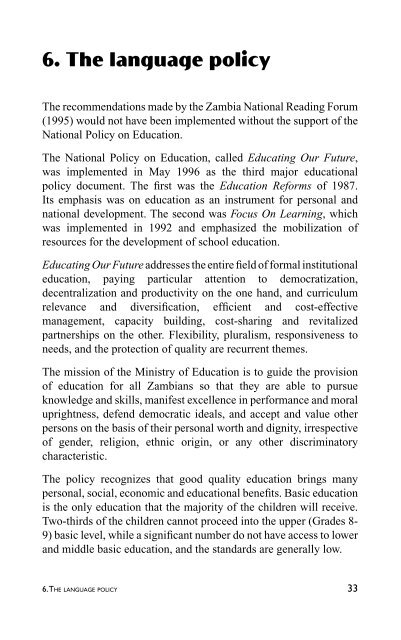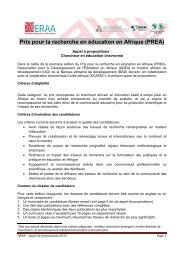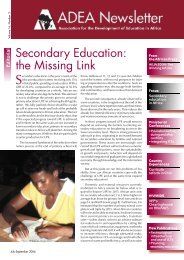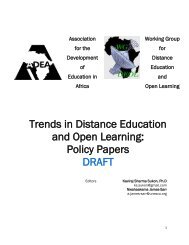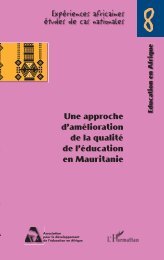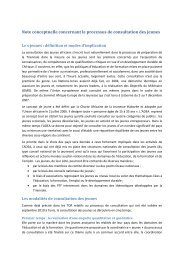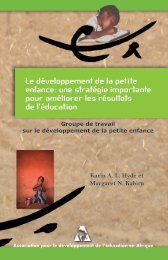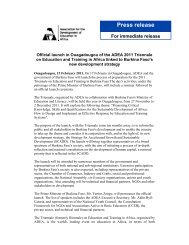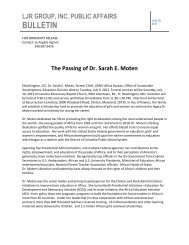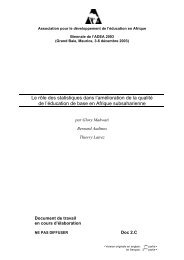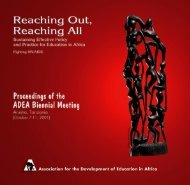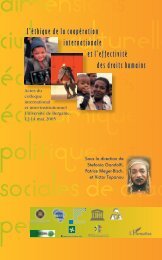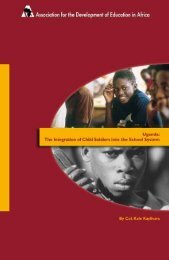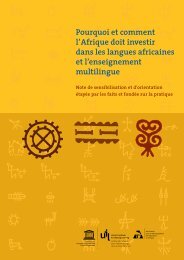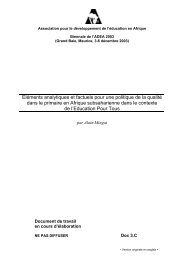Zambia's Primary Reading Program (PRP) - Global Partnership for ...
Zambia's Primary Reading Program (PRP) - Global Partnership for ...
Zambia's Primary Reading Program (PRP) - Global Partnership for ...
You also want an ePaper? Increase the reach of your titles
YUMPU automatically turns print PDFs into web optimized ePapers that Google loves.
6. The language policyThe recommendations made by the Zambia National <strong>Reading</strong> Forum(1995) would not have been implemented without the support of theNational Policy on Education.The National Policy on Education, called Educating Our Future,was implemented in May 1996 as the third major educationalpolicy document. The first was the Education Re<strong>for</strong>ms of 1987.Its emphasis was on education as an instrument <strong>for</strong> personal andnational development. The second was Focus On Learning, whichwas implemented in 1992 and emphasized the mobilization ofresources <strong>for</strong> the development of school education.Educating Our Future addresses the entire field of <strong>for</strong>mal institutionaleducation, paying particular attention to democratization,decentralization and productivity on the one hand, and curriculumrelevance and diversification, efficient and cost-effectivemanagement, capacity building, cost-sharing and revitalizedpartnerships on the other. Flexibility, pluralism, responsiveness toneeds, and the protection of quality are recurrent themes.The mission of the Ministry of Education is to guide the provisionof education <strong>for</strong> all Zambians so that they are able to pursueknowledge and skills, manifest excellence in per<strong>for</strong>mance and moraluprightness, defend democratic ideals, and accept and value otherpersons on the basis of their personal worth and dignity, irrespectiveof gender, religion, ethnic origin, or any other discriminatorycharacteristic.The policy recognizes that good quality education brings manypersonal, social, economic and educational benefits. Basic educationis the only education that the majority of the children will receive.Two-thirds of the children cannot proceed into the upper (Grades 8-9) basic level, while a significant number do not have access to lowerand middle basic education, and the standards are generally low.6. THE LANGUAGE POLICY 33


